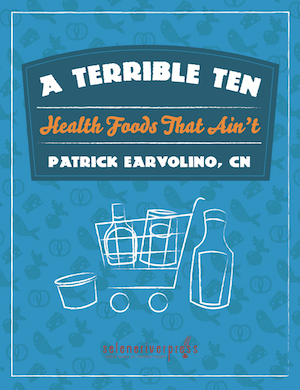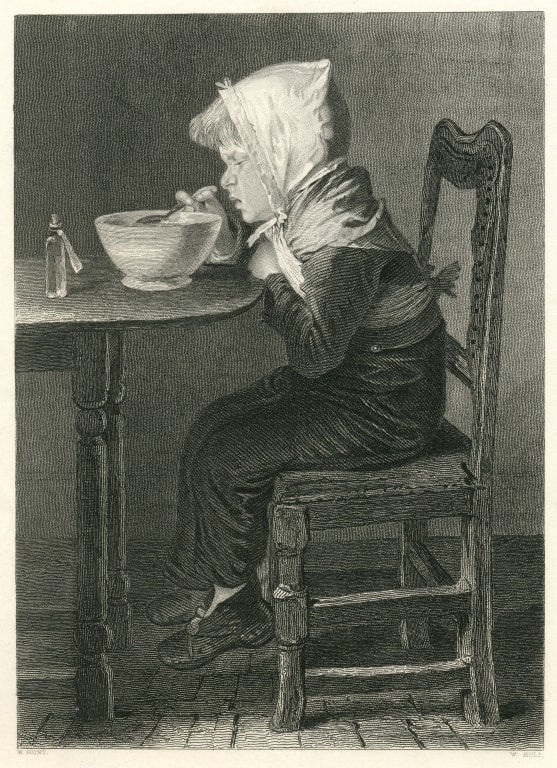I just learned something that blew my mind! But perhaps I’m getting ahead of myself…Show of hands: how many of you are familiar with the old wives’ tale about making your loved ones chicken soup when they get sick? Everyone’s hand is up, right? Well, what if I told you this isn’t just an old wives’ tale? What if the healing powers of chicken soup were backed up by actual science? Keep reading. By the end of this post, you may end up just like me—completely awestruck.
I’m guessing most people believe the whole chicken soup thing is mostly psychological, just as I once did. At some point in your past, someone took the time to make a batch of chicken soup just for you because you were feeling low. The warm, comforting broth soothed your entire being with every spoonful. How could you not feel better? The thing is, every spoonful of chicken soup does make you feel better, but it’s not all in your mind. There’s a physiological effect, as well. Think of the soup as a decoy, one that gives your body time to heal.
Like so many other things, this fact, while new to me, isn’t new at all. Dr. Royal Lee discovered the association between chicken soup and healing way back in the 1930s. Much more recently, I happened to stumble across the facts while reading Health Is Simple, Disease Is Complicated by James Forleo, DC.
Here’s the scoop—everyday life wears us down. We don’t handle stress effectively, we don’t eat the foods that make our bodies thrive, we don’t include enough physical activity in our daily routine—and that’s just naming a few. When this cycle is repeated day after day, our bodies never get a chance to replenish. We overwork our organs and glands until they aren’t capable of doing their jobs. Taken to the extreme, this causes autoimmune diseases and the body actually begins to attack itself.
According to Dr. Forleo, our organs leave behind “a trail of cellular debris” when they’re put under too much strain. This sends our immune system into combat mode, as it seeks out the cause of the debris. Low and behold, the trail leads right back to the over-stressed organ. Our immune system attacks the cause—or in this case, the organ—in an effort to make things “right.” And so the vicious cycle begins: the organ, now weaker after the first attack, creates even more cellular debris. The immune system looks for the cause, finds the organ, and starts a new attack. Around and around.
Chicken soup to the rescue! When you eat it, the tissues and bones in chicken soup create their own cellular debris. This debris serves as the decoy for that poor, strained organ of yours. Because the soup creates more debris than the organ, your immune system spends all of its time dealing with the effects of the soup instead. Left alone, the organ has time to heal.
If chicken soup contains the debris that serves as a decoy, doesn’t it stand to reason that beef soup would have a similar effect? Something to think about, anyway. Even if chicken soup isn’t your thing, Dr. Lee’s research uncovered another method to reap its benefits. Lee coined it “protomorphology,” and it involves the use of the protomorphogen extracts he developed many years ago. The various extracts are unique to each organ or gland. When you take the extract designed specifically for the organ that’s under attack by your immune system, it serves the same function as the chicken soup—it acts as the decoy and gives the organ time to heal.
You can find learn more about Dr. Lee’s work in the Historical Archives at Selene River Press. That’s where you’ll be able to download Protomorphology: The Principles of Cell Auto-Regulation, the full-length book Lee coauthored with William A. Hanson. If you don’t have time to read through all 400 pages, you may want to start with Dr. Lee’s single-page article, “Applied Protomorphology: The Physiological Control of Growth and Repair,” which you can also find in the Historical Archives.
So, do the legitimate powers of chicken soup surprise you, too? Are there any other seemingly mysterious healing methods that fill you with curiosity?
Photo from iStock/Whiteway
Related Topics
alternative health | whole food nutrition
 Get self-health education, nutrition resources, and a FREE copy of A Terrible Ten: Health Foods That Ain't ebook.
Get self-health education, nutrition resources, and a FREE copy of A Terrible Ten: Health Foods That Ain't ebook.

